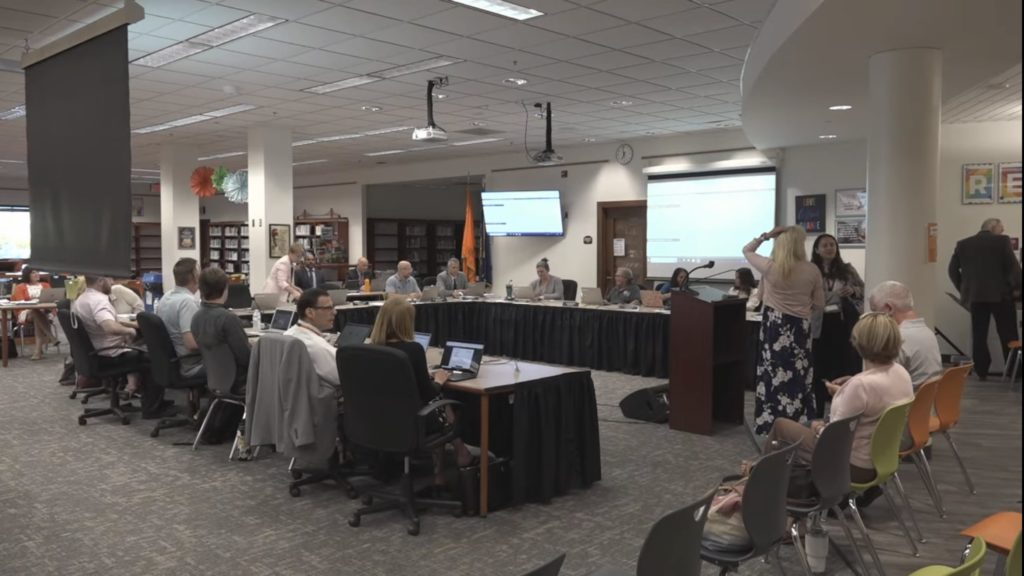Our school board and community have managed to argue on issues from masks to books to bathrooms. A climate akin to a match in a gasoline-doused room has been generated as a result of bickering and political debates held in the guise of school board meetings.
While there is no question of whether this charged environment exists, there is a question of whether this environment has negatively influenced PV students.
The short answer: Yes.
While practicing one’s 1st Amendment rights is undoubtedly important, there is a difference between that and what our community is currently practicing. In direct retaliation to school board decisions and discussions, students have organized and participated in walkouts. The walkouts in response to mask mandates and book bannings were reasonable practices of students’ First Amendment rights. However, the school board’s newest point of contention, the bathroom policy, is a whole other situation. The behavior witnessed throughout this issue has been much more volatile than that witnessed with prior issues. While dealing with this controversial issue, members of the school board and the community have resorted to yelling and interrupting each other instead of having a calm and rational discussion. To encourage civil discourse, the school board could implement consequences for disruptive behavior. One form of doing this is not allowing those who interrupt someone else to sit through the rest of the meeting. Another way could be by using a tally system. If you accumulate three tally points, due to improper behavior at meetings you are no longer given the privilege to attend school board meetings for the rest of the semester. Prohibiting those who repeatedly interrupt from attending meetings would show the student body that constructive debate is valued over disruption.
However, it is becoming increasingly apparent that members of the school board and the community are intent on tearing each other down for the sake of proving that their opinion is the right one.
Impressionable minors should be shown the necessity of compromise and hearing other people’s opinions instead of negating opinions that do not align with their own. When they are not exposed to this, they are led to believe that the correct way to deal with controversial issues is by loudly proclaiming their own opinions, effectively drowning out any other opinions. By having consequences in place for those who act out, the community and school board could lead by example and show the student body right from wrong.
However, the recent years have shown that the PVSD community is not leading by example. Unless the example we wish to leave for future generations is one of tearing each other apart simply because we do not agree with another’s opinions. In times of division within the community, we should be aiming to close that divide through compromise rather than increase that divide through arguing.
